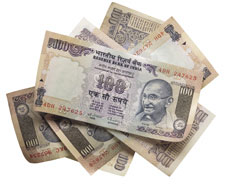Magazine
NRI – Non Respected Indian

There is still the totem pole of respect and we NRIs have not reached any higher since the time we left India - only our price of admission went up.
| It is hard to be an NRI in India. It is fine theoretically and seems to work fine for most purposes. But it can be damn hard sometimes. Each day, you discover more complications with this idea of living your own identity. And, we are not talking about dual citizenship or other such gimmicks.
I found myself – my native identity now implanted firmly in the United States – in India two months ago. It was an interesting experience, to say the least. It seemed like making myself an object of learning, even as I was learning what it means to be an NRI in India.
It so happened that I was with a Caucasian American associate for most of the trip. That provided even more engaging encounters and eye-opening discoveries. For part of the trip, we stayed at an ecohotel in Mumbai, appropriately named Orchid. If you insist on asking what that is, it is in many ways a metaphor for treating people. It is supposed to be an environmentally friendly place, plugging into a countercultural, socially aware capitalism that is taking hold in India. There is little they seemed to conserve, including water for your showers or supplies in your closet. It was hard to see what they did to be eco-friendly. But it seemed to work well as a publicity stunt. When guests arrived, they were to be treated equally, with glittering promises written all over the entrances on little electronic boards. In reality, the story was different. I shouldn’t pick on this hotel alone, because quick visits to hotels in the vicinity and my telephone inquiries with other hotels in the area convinced me that there seemed to be a common three-tier policy toward three classes of guests (who knows how many others).
If that is not curious enough, consider this: a dollar paying customer, checking in at the same time, in the same kind and class of room, gets a bathrobe and extra goodies in his room, while the poor native-looking shmuck does not get these rewards. I discovered this even if the non-blessed NRI forks out the full dollar rate. The discrimination does not stop there. There is the servile attitude that is deeply implanted among us toward whites and Westerners. So they continue to get the privileged deal over the local-yokal NRI. Indians and NRIs seem so used to it, that we don’t complain too much (if ever) or even tacitly play along. I spent a good part of my stay figuring out and playing games to discover that the service is slower for us NRIs over Westerners and simply fewer warmer smiles. All this while, paying the same the non-shmuck foreigner pays. Airlines seem to have the same logic too. There are two different layers of fares. If you pay in the coveted alien currency, you can carry larger pieces of luggage and it arrives on time. It does not look like it has been thrown around. I was keen to see if these people arrive early, but that did not seem to happen. One time on Hungarian Malev airline, I was told that Hungarians behaved well in the presence of foreigners and so did the airline staff. However, if there were no foreigners on the plane, all bets were off and it was party time. Well, good for them. On Indian airlines, somehow, things work the other way around. We seem to be on our better behavior when we are by ourselves. Mixing the pot produces weird gestures, like this servile attitude, which becomes a shameful spectacle in itself. How many times do you have to offer food to the already plentiful people? There is some respect that NRIs get in public places, but it is more this servile awe and not this non-assuming easy-going attitude with which people treat each other in India. It is no doubt a curse for NRI tourists if they genuinely like the easy and charming presence of being ourselves among ourselves. But throughout my India visit, something inside me yearned to be treated like a genuine Indian. I did what every NRI Indian wannabe does, donning simple clothes and wiping off that NRI look off my face. But to no avail. There is a two-tiered ticketing system at most archeological and tourist sites in India from the Taj Mahal to Mahabalipuram. A foreigner pays more, several times more, than the native. And the NRI? I thought I was fully Indian. I acted like one, language, gestures and all. Since I am a real Indian, I thought I could get away paying the genuine Indian price for entry to the Mahabalipuram site. I even stopped my English yards away from the ticket counter.
Sure, I could afford the price in dollars. I was going to bust my budget for the India visit regardless. My motivation to trick the sharp cookies behind the counter was not so much to save money, but to prove a point. I am an Indian and can act like one. And that did not work. As an NRI that really hits you where it hurts. We all attempt something like this in India. There were plenty of examples all around. I was advised to make reservations at Indian hotels through native friends and relatives. There is a way to hide this or that NRI part of your identity to save a buck. After all, the desire to save a buck, even if it is the poor Rupeee, makes us like the native Indians. But underneath all that, there seems to be a need not to sound and look like a foreigner.
Funny thing is that if you really looked and sounded like a foreigner, you would be treated better. Paying more may not be fair to the fair skinned, but you will atleast be treated better – better than the lesser paying locals and the equally higher paying NRI shmuck. So what do you do? Hide being what you are, or show it off. If you showed off, you are really not the real thing. There is still the totem pole of respect and we NRIs have not reached any higher since the time we left India – only our price of admission went up. |




